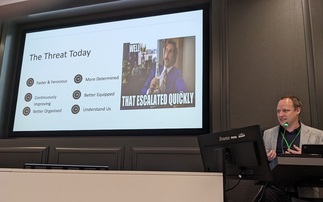17-year-old admits to seven offences under the Computer Misuse Act 1990
The 17-year-old hacker behind the attack on internet service provider (ISP) TalkTalk in October 2015 has said in court that he was "just showing off" in front of friends. The teenager, who canno...
To continue reading this article...
Join Computing
- Unlimited access to real-time news, analysis and opinion from the technology industry
- Receive important and breaking news in our daily newsletter
- Be the first to hear about our events and awards programmes
- Join live member only interviews with IT leaders at the ‘IT Lounge’; your chance to ask your burning tech questions and have them answered
- Access to the Computing Delta hub providing market intelligence and research
- Receive our members-only newsletter with exclusive opinion pieces from senior IT Leaders




















